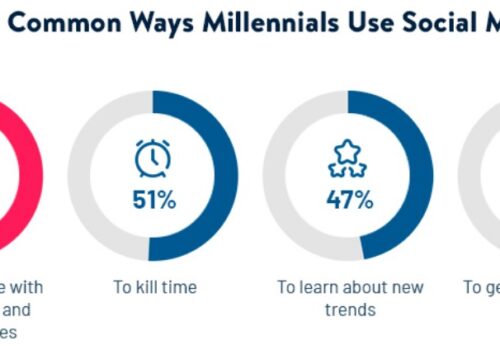Let’s delve into some basic facts and figures about startups, explained in simple language.
Whether you’re new to the startup world or just curious, these easy-to-understand statistics will provide you with a clear picture of what’s happening in the startup scene.
Every year, thousands of enthusiastic founders start a new company filled with optimism and anticipation.
Unfortunately, data on startup failure rates reveal that more than 50% of them will cease to exist in four years. Let’s put that statistic aside for now and focus on some more inspiring and encouraging data related to startups.
| Statistic | Detail |
|---|---|
| U.S. Entrepreneurs Starting Firms at Home | 69% |
| Startups Failing Due to Lack of Profit/Financing | > 1/3 |
| Successful Firms’ Founders’ Focus | Making a Difference |
| Startups Becoming Profitable | 40% |
| Startups’ Greatest Problem | Competition (19%) |
| LLCs in Small Businesses | 35% |
| S-corporations in Small Businesses | 33% |
| Corporations in Small Businesses | 19% |
| Sole Proprietorships in Small Businesses | 12% |
| Partnerships in Small Businesses | 2% |
| Series A Startups’ Monthly Expenditure | 47% Spend $400k+ |
| New Businesses Created (2022) | 5 Million |
| Small Businesses Operating in U.S. (2022) | 30.2 Million |
| Time Before New Capital Post Series B/C | 15-20 Months |
| Entrepreneurs with at Least a Bachelor’s Degree | 51.4% |
| Profitable Startups | 2 in 5 |
| AngelList Growth (YoY 2022) | 21% |
| Average Series A Funding (2017-2022) | $12.1 Million to $15 Million |
| 60-Year-Olds Building Successful Startups (2023) | 3x More Likely Than 30-Year-Olds |
| Active Unicorns in U.S. (2022) | 1,000 |
| Yearly Startup Costs for 5 Employees in U.S. | ~$300,500 |
| Women Entrepreneurs | 41.5% |
| Time to Start a Business in the U.S. | 6 Days |
| Small Businesses Outsourcing to Other Small Businesses | 66% |
Startup Statistics 2025
Source: Pexels
Statistics on Startups by Country
- In terms of the number of startups, the United States leads the pack (63,703).
- India is ranked second on the list, with 8,301 businesses.
- With 5,377 startups, the United Kingdom takes third place.
- The majority of the highest-value companies are based in China and the United States.
- Chile is the world’s most entrepreneurial country.
- In 2021, the finest locations to start a business are Hong Kong, China, and New Zealand.
- Latin American business owners are thought to be the bravest.
- In 2022, there were 5 million new businesses created.
- There were 30.2 million small businesses operating in the U.S. in 2022.
Facts and figures on the Startup State of companies
Source: Pexels
- 45 percent of European companies reported having simple access to capital. 32 percent of European startups indicated they were having trouble acquiring finance.
- Self-funding is the predominant source of finance for 66% of European businesses, while business angels and venture capital firms account for 9% and 7%, respectively.
- Venture capital was the key funding source for 42 percent of firms in the United Kingdom, Canada, and the United States.
- For their venture-backed firms, Black & Latinx women founders garnered $3.1 billion in 2020.
- In the median seed investment round, a rising number of Black & Latinx women entrepreneurs have acquired more than $1 million.
Statistics on Startup Success
- Mining has the highest 5-year survival rate among new firms (51.3 percent). If a company founder has had previous business success, they have a 30% chance of repeating their success with their current endeavor.
- 82 percent of successful entrepreneurs believe that their qualifications and expertise are sufficient to run a business.
- 14 percent of startups fail because they ignore the needs of their customers.
- The most difficult task for any new business is to generate fresh revenue.
- Healthcare startups in the United States were the most successful in 2017, bringing in 36.3 billion dollars in revenue when combined with Inc. 5000 enterprises.
- The epicenters of entrepreneurship, San Francisco & Silicon Valley, are home to 13.5 percent of total global startups.
- Companies raise nearly three rounds before Series A funding.
- Only 2 in 5 startups are profitable.
- In 2022, AngelList saw 21% YoY growth.
- Startups can expect to pay around $300,500 for five employees across the U.S. in the first year.
- 41.5% of all entrepreneurs are women.
- Factors affecting funding include the time of year, the details of data, and the value of the pitch deck.
- It takes six days to start a business in the United States.
- 66% of small businesses outsource services to other small businesses.
Statistics on Startup Failure
- Around 90% of new businesses fail.
- Within the maiden year of business, 10% of startups fail.
- Regardless of industry, startup failure percentages appear to be relatively comparable.
- Within the second to fifth year, 70% of startups fail.
- Because they misjudged target market demand, 42% of businesses fail.
- Because of a lack of finance and personal funds, 29% of firms fail.
- In 2018, 82 percent of businesses that failed did so because of cash flow issues.
- The main reasons for small business failure are a lack of market need (42%), cash flow problems (29%), the wrong founding team (23%), being outcompeted (19%), pricing/cost concerns (18%), and a user-unfriendly product (17 percent ).
The COVID-19 Pandemic’s Impact on Startups
- Owing to the global pandemic, 77 percent of business entrepreneurs believe they will fail in 2020.
- Average startups have fired an average of 33 percent of their workforce since the outbreak began.
- As a result of the epidemic, four out of ten companies are in the red category, meaning they have 3 months or less of cash runway. Since the beginning of the epidemic, 72 percent of startups have seen a drop in sales.
- The drop was 32 percent on average.
- A revenue decrease of 40 percent or more was recorded by more than 40 percent of businesses.
- Because of the pandemic, an average of 22 percent of startups have reduced their expenses.
- Portugal was the hardest hit among OECD countries (Organization for Economic Co-operation & Development).
- Between March – April 2020, the number of new businesses registered in Portugal fell by 70%.
- France (54%), Hungary (47%), and Turkey (58%) have been severely impacted.
- In the Q2 of 2020, in comparison to the first quarter of the year, fintech deals declined to roughly 30%.
- The Q2 of 2020 saw the poorest deal count for Asian & European fintech firms since the Q4 of 2016.
Perspectives In The Post-Pandemic Era
- 31.2 percent of entrepreneurs are enthusiastic about starting a business, with some even preparing to do so in 2021.
- According to 32.9 percent of respondents, now is an ideal moment to set up a business.
- 63.9 percent of entrepreneurs said they were more inclined to start a new firm currently than in the preceding three months in February 2021.
- 7.7% of business owners stated they are less inclined to begin a firm now than they were three months ago.
- 37.3 percent said the pandemic piqued their desire to take charge of their own destiny through business ownership.
- The pandemic has caused 28.8% of respondents to gravitate toward pandemic-resistant enterprises.
- In 2021, 72 percent of startup entrepreneurs expect the pace of hiring to pick up.
- The eCommerce, deep-tech, digital media & logistics sectors are the most likely to profit from the expected increase in hiring.
- According to analysts, the US economy will increase at a rate of 5% this year.
- Investors’ attention will probably move to more conventional sectors like airlines, energy, hotels, & banking in the post-pandemic years.
Financial Statistics, Facts, and Figures For Startups
Diversity and Demographics of Startup Founders
Reasons for Launching a Startup
- 26 percent of individuals who establish a small business claim they did so because they wanted to be independent.
- 23 percent expressed an interest in pursuing their passion.
- The chance offered itself to 19% of persons launching a new business, & they took it.
- Only 2% of new business entrepreneurs express dissatisfaction with corporate America.
- 7% of new business owners have been outsourced or laid off.
- 6% of those polled said they weren’t ready to retire.
- After a life-changing event like death or divorce, 3% of people launched a new small business.
- 66% of small businesses outsource services to other small businesses.
Gender
- In 2019, the male-to-female entrepreneur ratio was 10:7.
- In 2019, 73 percent of small business entrepreneurs identified as male and 25% as female.
- 41.5% of all entrepreneurs are women as of 2023.
Education
- A high school diploma or GED is required for 33% of those beginning a small business.
- An Associate’s Degree is held by 18% of the small business owners.
- A Bachelor’s Degree is held by 29% of the small business owners.
- A Master’s Degree is held by 16% of the small business owners.
- A Doctorate is held by 4% of people who start a small business.
Age
- According to a 2018 study, a 60-year-old is thrice more likely than a 30-year-old to launch a successful firm.
- When it refers to age, the majority of small business entrepreneurs are between the ages of 50 and 59, with the least number being over 70. (40 percent ).
- People between the ages of 40 and 49 make up 25% of those who start a small business.
- 60-69-year-olds account for 18%.
- People aged 30-39 make up about 14%.
- 18-29-year-olds make up 4% of those establishing a small business.
Ethnicity
- White/Caucasians own 71 percent of new businesses.
- Asian/Pacific Islanders make up about 11%.
- Black/African Americans make up about 7%.
- Hispanic/Latinos make up about 6%.
Figures For Startup Teams In Small Businesses
Source: Pexels
- Small firms account for 99 percent of all businesses in the United States, with fewer than 500 employees.
- Finding the appropriate staff for a startup requires 6 months on average.
- If a startup team has a lot of previous experience but only mediocre to poor collective vision and passion, it will fail.
- HR, payroll, and hiring procedures, for example, can take up to 40% of a startup owner’s working day.
- Firms with 11 to 50 employees have a higher failure rate than firms with more than fifty employees.
- If there are 2 founders, thrice the customer growth, and 30 percent more financing, a startup’s chances of success increase.
- A CFO is employed by more than half of all small enterprises.
- Over 99% of U.S. businesses are considered small (less than 500 employees).
- It takes an average of six months to hire someone for a startup.
- Passion and shared vision are crucial for strong startup teams.
- Startup owners spend around 40% of their working hours on non-income-generating tasks.
- Startup failure is most common when the company has 11–50 employees.
- Two founders increase the odds of startup success.
- 23% of startups mentioned team issues leading to failure.
- Experience alone does not make a team successful.
- Over 18% of small businesses have a Chief Financial Officer.
Statistics on Employees and Outsourcing in Startup Jobs
- Freelancers accounted for just over 1/3rd of the US employment in 2020.
- Freelancers are used by 42% of small enterprises.
- Because of the pandemic, 34% of freelancers will be obliged to start fresh projects in 2020.
- By the end of the year 2021, freelancers will make up 42 percent of US employment.
- Small firms employ 47.3 percent of the private workforce in the United States.
- The average tenure of a small business employee is four years. China had far greater patent applications than any other country in 2020.
- Globally, there were 997,501 yearly patent applications in 1990, and the number had climbed to 3,224,00 two decades later.
- As of 2020, intellectual property services contributed $115.3 billion to the trade imbalance in the United States.
- Intellectual property costs more than any other commercial service in the United States.
Statistics on Startups By Industry
- Company services (11 percent), restaurants (11 percent), health/beauty/fitness (10 percent), general retail (7 percent), and residential services (6 percent) were the industries with the most small biz startups in 2018.
- Accounting/tax preparation/bookkeeping/payroll services (18.4 percent NPM), real estate lessors (17.9% NPM), legal services (17.4 percent NPM), management of companies & enterprises (16 percent NPM), & activities pertaining to real estate (14.9 percent NPM) are the 5 most profitable small biz sectors by net profit margin (NPM).
- Gas & oil extraction (6.9% NPM), software publishers (5.1 percent NPM), beverage manufacturing (3.7 percent NPM), semiconductor & other electronic component manufacturing (0.3 percent NPM), and forging and stamping (0.4 percent NPM) are the top 5 least profitable industries in the United States by Net Profit Margin (NPM).
FinTech Startups Statistics
- The fintech industry employs 7.1 percent of all startups worldwide.
- Successful financial businesses, according to the study, depend on data-driven iteration & constant user testing rather than just new technology. In 2018, worldwide venture capital fintech investment was $30.8 billion, a $1.8 billion increase from 2011.
- The average cryptocurrency and blockchain investment climbed by more than $1 million in 2018.
- There are thirty-nine venture capital-backed unicorns in the fintech business, worth a total of 147.37 billion dollars.
- The price of customer acquisition is the most significant hurdle for fintech firms.
- Decentralized finance startups raised $2.1 billion in the first quarter, while NFT-focused startups raised $2.4 billion, both reaching all-time highs.
- Successful fintech startups emphasize data-driven iteration and continuous user testing rather than relying solely on new technology.
- Venture investment in fintech companies reached $81 billion as of Dec. 14.
- About 80% of financial institutions have implemented fintech partnerships.
- As of 2022, approximately 21% of American adults have owned cryptocurrency.
- There are over 12,000 fintech startups worldwide, with 5,779 located in the United States.
- The fintech market includes 39 venture capital-backed unicorns worth a combined $147.37 billion.
- Crypto startups have raised significant capital, setting records in the first quarter of 2022.
- In October 2022, the United States accounted for slightly over half (53.9%) of all unicorns.
- Customer acquisition cost is a significant challenge for fintech startups.
Statistics on Construction Startups
- Construction has the second-highest failure rate, at 53 percent.
- In 2017, North American construction startups received $581.6 million in investment, up from 182.7 million dollars in 2013.
- Investors contributed to eighty-six construction startup deals last year. 1 of the least computerized industries is construction.
- A new construction startup’s odds of staying longer than five years is 36.4 percent.
- Artificial intelligence (AI) is expected to enhance construction industry startup revenues by 71%.
- Residential house construction is the fastest-growing segment of the construction industry.
- Construction had the second-highest failure rate as of 2022.
- Construction tech startups in North America alone reportedly raised $1.3 billion in the first half of 2022, representing a 44% increase over the previous six months.
- Investors contributed to 87 construction startup deals in a given year.
- Katerra, a construction startup, brought in $865 million in a Series D round.
- The construction industry is among the least digitized sectors.
- The likelihood that a new construction company will last more than five years is 36.4%.
- This is good news for construction startups, as AI technology is estimated to boost profits by 71% for this industry.
- Residential housing construction is growing faster than any other construction segment, attracting new businesses.
- Electric utility construction is estimated to decline by 9%.
Statistics on Technology Startups
- The average age of a tech entrepreneur is 39 years old.
- The largest tech market in the world is the United States, with a market value of $1.6 trillion in 2019.
- In the United States, on average, 20 technological businesses are formed each year, with revenues exceeding $100 million.
- Since about 2018, the tech firm sector has had the greatest failure rate (64%) of all industries.
- Each year, 20 technology businesses are formed, with an average revenue of $100 million.
- Between 2007 and 2016, tech-related pay growth was 20%, compared to only 3% for the overall US economy.
- The number of electronics & computer manufacturing startups increased by 78 percent between 2007 and 2016.
- Over the previous five years, the robotics sector has increased by 1,400%. In 2020, investment in artificial intelligence is expected to reach $8.2 billion.
- The average age of tech startup founders is 45.
- The U.S. is the largest tech market globally, with a value of $1.8 trillion in 2022.
- The United States averages 20 technology companies founded annually that reach $100 million in revenues.
- The tech startup industry has the highest startup business failure rate, at 63%.
- Tech-based wage growth was higher than overall U.S. wage growth, at 60.9%.
- There are ten technology-based industries that define tech-driven startups.
FAQs
📊 What are the latest trends and statistics in the startup world?
Startup trends and statistics can vary year by year, but they often include information on funding amounts, industry sectors, success rates, and the impact of technology on startups.
👩💼 What is the demographic profile of startup founders?
The demographic profile of startup founders includes factors such as age, gender, educational background, and previous entrepreneurial experience. It can vary and often reflects the diversity of the startup ecosystem.
🌐 What are the global figures and facts regarding startups?
Global startup figures include data on the number of startups worldwide, funding trends, and international startup hubs. These figures provide insights into the global startup landscape.
🚀 What are the key challenges faced by startups in today's market?
Challenges for startups may include securing funding, competition, market saturation, regulatory hurdles, and adapting to rapidly changing market conditions.
🤝 How do startups collaborate and partner with established businesses?
Startups often collaborate with established companies through partnerships, investment, and joint ventures. Such collaborations can provide startups with resources and access to larger customer bases.
🌍 Are there statistics on startups by country or region?
Yes, there are startup statistics specific to different countries and regions, reflecting local economies, regulations, and entrepreneurial ecosystems.
Quick Links:
- Napping Statistics, Facts, and Figures
- Ecommerce Statistics
- Internet Statistics & Facts
- Mobile Apps Statistics To know
Conclusion: Startup Statistics 2025
Statistics provide important information about the world of new businesses. These numbers tell us how often startups succeed or fail, how much money they receive, and who starts them.
They also show us the impact of events such as the COVID-19 pandemic and how startups are evolving.
Startup statistics help us understand the challenges and opportunities in the business world. They can guide entrepreneurs, investors, and policymakers in making informed decisions to support and enhance startups.
Therefore, whether you’re contemplating starting your own business or simply curious about the startup world, these statistics offer valuable insights into this exciting and dynamic field.
Sources: findstack, techjury, fortunly, firstsiteguide, statists, financesonline, forbes, websitebuilder, smallbusiness







